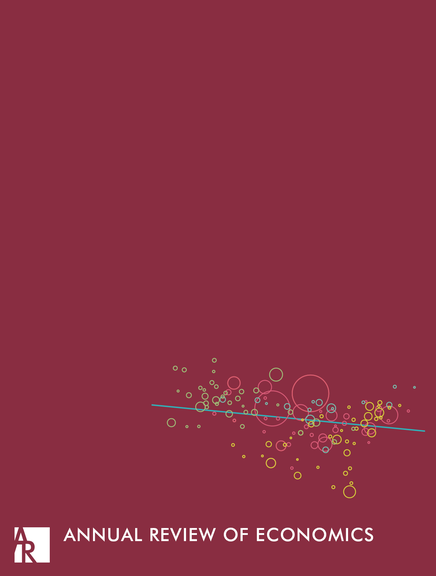Inflation Inequality: Measurement, Causes, and Policy Implications
IF 11.4
2区 经济学
Q1 ECONOMICS
引用次数: 35
Abstract
Does inflation vary across the income distribution? This article reviews the growing literature on inflation inequality, describing recent advances and opportunities for further research in four areas. First, new price index theory facilitates the study of inflation inequality. Second, new data show that inflation rates decline with household income in the United States. Accurate measurement requires granular price and expenditure data because of aggregation bias. Third, new evidence quantifies the impacts of innovation and trade on inflation inequality. Contrary to common wisdom, empirical estimates show that the direction of innovation is a significant driver of inflation inequality in the United States, whereas trade has similar price effects across the income distribution. Fourth, inflation inequality and non-homotheticities have important policy implications. They transform cost-benefit analysis, optimal taxation, the effectiveness of stabilization policies, and our understanding of secular macroeconomic trends—including structural change, the decline in the labor share and interest rates, and labor market polarization.通货膨胀不平等:测量、原因和政策含义
通货膨胀是否因收入分配的不同而不同?本文回顾了关于通货膨胀不平等的越来越多的文献,描述了四个领域的最新进展和进一步研究的机会。首先,新的价格指数理论有利于研究通货膨胀不平等。第二,新的数据显示,美国的通货膨胀率随着家庭收入的增加而下降。由于聚集偏差,准确的测量需要细粒度的价格和支出数据。第三,新的证据量化了创新和贸易对通胀不平等的影响。与常识相反,实证估计表明,创新的方向是美国通货膨胀不平等的重要驱动因素,而贸易在整个收入分配中具有类似的价格效应。第四,通胀不平等和非同质性具有重要的政策含义。它们改变了成本效益分析、最优税收、稳定政策的有效性,以及我们对长期宏观经济趋势的理解——包括结构变化、劳动力份额和利率的下降以及劳动力市场两极分化。
本文章由计算机程序翻译,如有差异,请以英文原文为准。
求助全文
约1分钟内获得全文
求助全文
来源期刊

Annual Review of Economics
ECONOMICS-
CiteScore
9.70
自引率
3.60%
发文量
34
期刊介绍:
The Annual Review of Economics covers significant developments in the field of economics, including macroeconomics and money; microeconomics, including economic psychology; international economics; public finance; health economics; education; economic growth and technological change; economic development; social economics, including culture, institutions, social interaction, and networks; game theory, political economy, and social choice; and more.
 求助内容:
求助内容: 应助结果提醒方式:
应助结果提醒方式:


